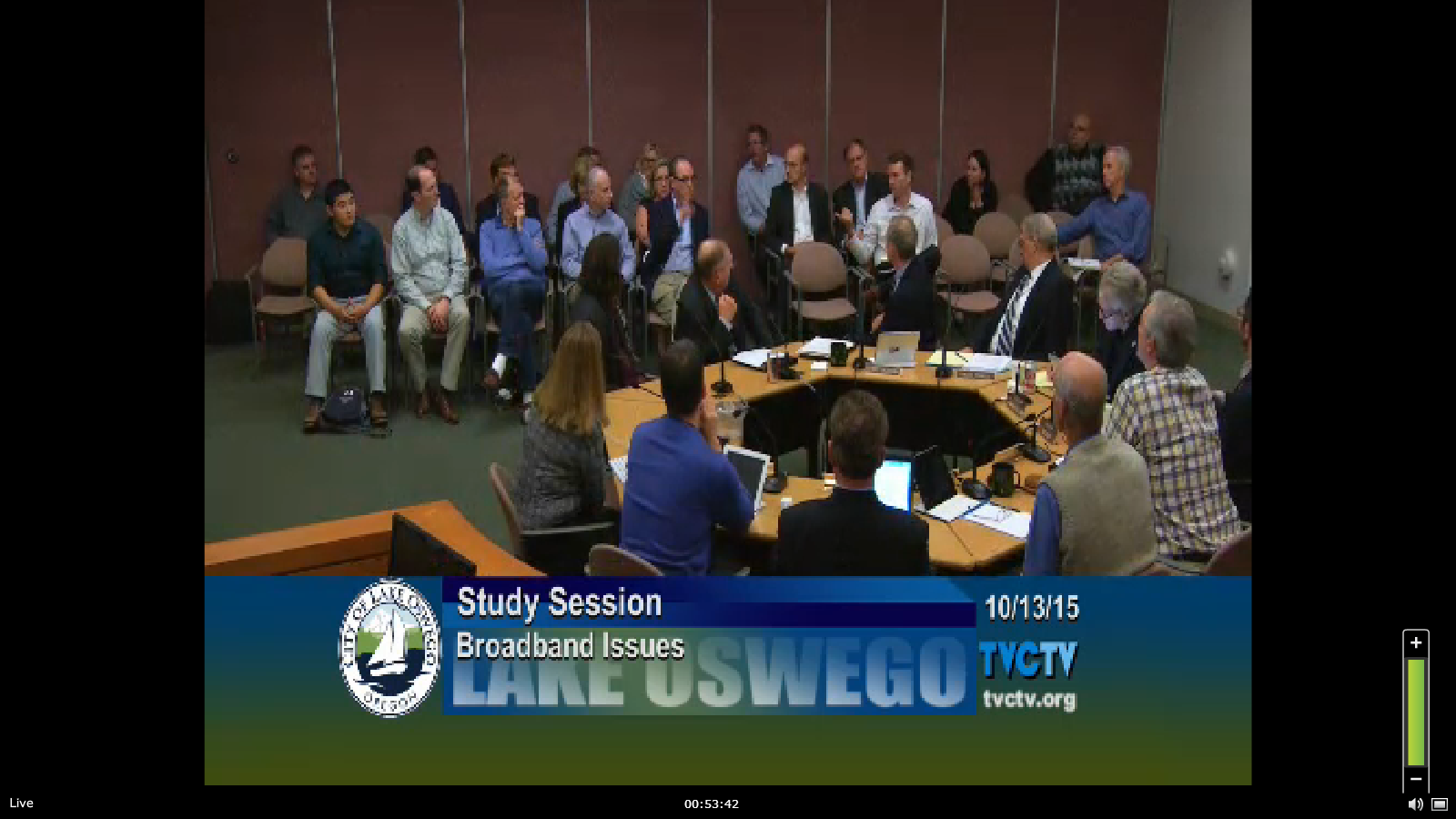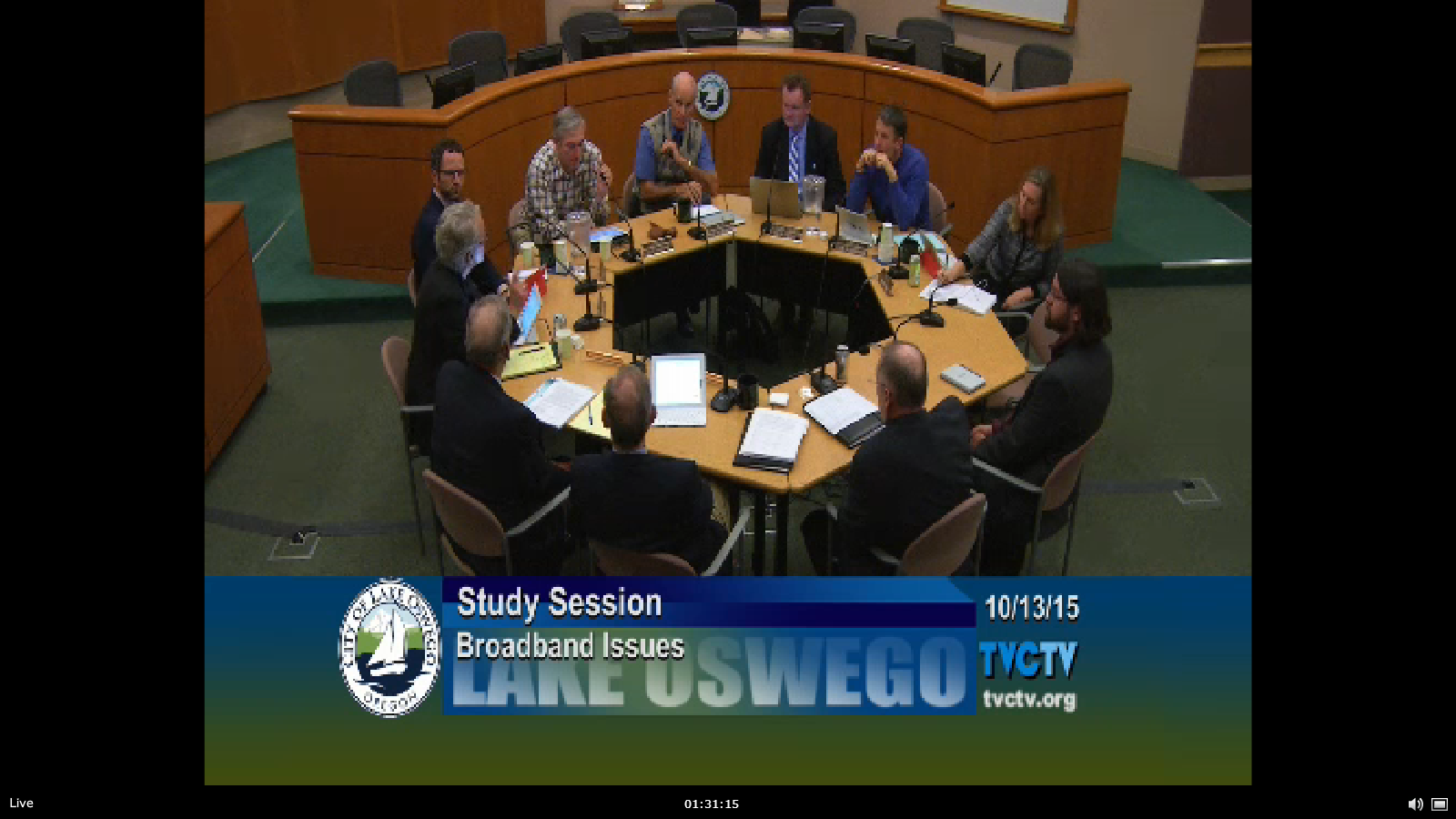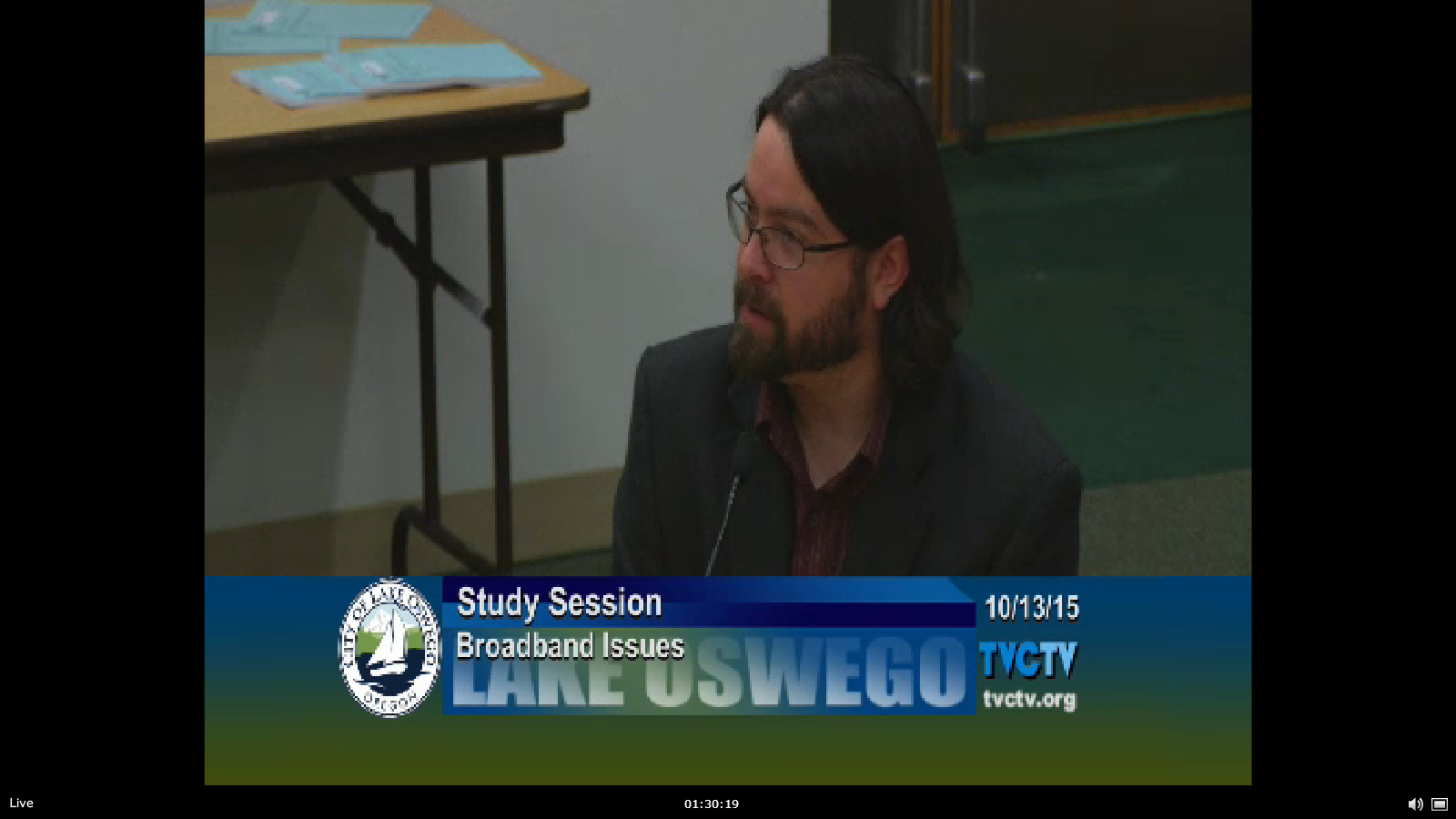Spurning Google Fiber, Portland Suburb of Lake Oswego Pushes Toward Broadband Partnership
LAKE OSWEGO, Oregon, October 14, 2015 – This suburb of Portland, a potential candidate for Google Fiber’s Gigabit-speed internet service, has said it isn’t willing to wait around for the search engine giant. At a city council meeting here on Tuesday night, elected officials in this city of 37,000 l
LAKE OSWEGO, Oregon, October 14, 2015 – This suburb of Portland, a potential candidate for Google Fiber’s Gigabit-speed internet service, has said it isn’t willing to wait around for the search engine giant.
At a city council meeting here on Tuesday night, elected officials in this city of 37,000 listened, questioned and debated between two proposed public-private partnerships that would result in the construction of Gigabit-speed fiber-optic infrastructure.Instead of sitting and waiting for Google, the city council members appeared inclined to move forward on a public-private project with city involvement.“There was a great buzz and excitement when Google announced” the possibility that it would come to Portland, said Councilmember Jon Gustafson during the session — but the city hasn’t wasn’t seen any action since that time.Last year, Google announced possible expansion to Portland and five suburbs, including Lake Oswego. The company has made commitment, however.“Google is still at the vapor stage,” added Chip Larouche, chief technology officer for the city. Speaking at the Tuesday meeting, he said that Google is “talking about how ‘we might make you a promise.'”Instead, City Manager Scott Lazenby said that in June Lake Oswego put out a Request for Proposals to build their own Gigabit Network. The city received two responses from private companies, and one from the City’s own Public Works Department.The City requested a comparative response from Public Works to price-check the private companies’ proposals. In an interview, Lazenby said that city staff began to lean toward a public-private partnership “once we saw that the private partners’ costs were not more expensive.”Tuesday’s meeting was called to review the report about the two leading proposals that were released earlier this month on the city’s web site.Each of the companies’ proposals take a public-private approach. One was from consortium led by the Oregon-based Sunstone Business Finance, and the other is from British-based SiFi Networks.If selected, the winning bidder would finance, build and operate a fiber network for the city. It would serve every home and business in Lake Oswego. The city would make annual “lease” payments to cover costs of building and running the network. And after a period of 20 or 30 years, ownership of the fiber network would revert to the City.Such public-private proposals for last-mile fiber networks are being considered much more frequently by cities across the country. One year-old non-profit group, Next Century Cities, provides information and support to cities that are seeking to consider such partnerships — or the steps necessary to build their own municipal networks.At Tuesday’s meeting by the Lake Oswego City Council, Chris Mitchell of the Institute for Local Self Reliance offered advice to elected officials on the “hard decision” that they need to make to bring advanced networks to their towns.“Option one, you don’t do anything, and Google doesn’t do anything and the incumbents don’t, either,” said Mitchell, who is also affiliated with Next Century Cities. “Speeds stay the same, with small upgrades, and it is more expensive over time. This is not an attractive option.”“Option two, you do something and take on some risk, and the response from the other providers is to cut prices and invest in higher speeds. You have to struggle to make your investment whole because now, you are not fighting against incumbents with high prices and slow speeds.”But, said Mitchell, this Hobson’s choice provides an opportunity for forward-looking cities.Because they are not as concerned as private companies about their return on investment, but are more focused on the benefits of better broadband, such cities can succeed by making investments — as long as they can stomach the risk.Public-private partnership such as those offered by Sunstone and SiFi Networks can help cities mitigate these risks, he said. Referring to the experience being assembled among more than the 115 cities that make up Next Century Cities, Mitchell said that “we are seeing a lot of different approaches.”Most cities find that fiber-built networks can succeed, over time, so long as between 30 and 35 percent of households migrate to the new network, he said. The nearby town of Sandy recently built its own network, he said, and is enjoying such success.
Drew Clark is the Chairman of the Broadband Breakfast Club. He tracks the development of Gigabit Networks, broadband usage, the universal service fund and wireless policy @BroadbandCensus. He is also Of Counsel with the firm of Best Best & Krieger LLP, with offices in California and Washington, DC. He works with cities, special districts and private companies on planning, financing and coordinating efforts of the many partners necessary to construct broadband infrastructure and deploy “Smart City” applications. You can find him on LinkedIN, Google+ and Twitter. The articles and posts on BroadbandBreakfast.com and affiliated social media are not legal advice or legal services, do not constitute the creation of an attorney-client privilege, and represent the views of their respective authors.










